IFOY finalists are revealed!
IFOY finalists are revealed!
The International Intralogistics and Forklift Truck of the Year (IFOY) Awards represent the Oscars of supply chain management. These 25 products stand to gain glory in the 2023 awards!
A total of 25 products from 23 companies have been nominated for the 2023 IFOY Awards. These finalists will undergo the IFOY audit at Test Camp Intralogistics at Messe Dortmund from March 27 to 30. Journalists from around the world – including FOCUS – will travel to Dortmund to put the finalists through their paces.
“The audit of the IFOY finalists promises a spectacular setting this year. With their selection, the jury has lined up the best of the best in intralogistics. They show where the journey of intralogistics is heading in the future: classic warehouse technology is becoming increasingly sophisticated; quick commerce, robotics, and AI are making their way into logistics; and innovative details are making warehouse life more efficient, easier, and more productive,” emphasises Anita Würmser, chairperson of the IFOY jury.
Intralogistics specialists AGILOX, Combilift, Continental, Crown, DS AUTOMOTION, HIKROBOT, IdentPro, Jungheinrich, Kemaro, Libiao Robotics, Mobile Easykey, NIMMSTA, Raymond, STILL, Volume Lagersysteme, and Youibot Robotics are all aiming to win one of the trophies. When it comes to start-ups, meanwhile, the finalists are 1MRobotics, Loady, ff Fördersysteme, HUNIC, Predimo, Sentics, and sereact.
Five warehouse trucks nominated
The jury selected a total of five manually operated warehouse trucks for the finals: three in the highlifter category and two lowlifters.
The Aisle-Master OP from Irish forklift specialist Combilift, with a lift height of 12.1 m and a load capacity of two tonnes, combines the advantages of a narrow-aisle forklift and an order picker. The forklift shows its strength in the high-performance segment and manoeuvrability in narrow aisles, for rack delivery and bulk order picking. The combi device can also be used as a conventional forklift truck with rubber tyres for indoor and outdoor applications, such as loading and unloading trucks.
The brand new SP 1500 from US supplier Crown has been nominated as a finalist before its official market launch. The completely redesigned order picker – with a reach height of 11.2 m and load capacities of up to 1.25 tonnes – has been optimised in terms of all-round visibility, performance, and speeds. With its ergonomic operator area and numerous innovative details, it is aimed not only at traditional order picking, but above all at the requirements of retail and e-commerce.
Two finalist slots have been secured by the Hamburg intralogistics specialist STILL. The company’s further developed PXV vertical order picker impressed the jury with its gripping height of 14.5 m. Equipped with numerous safety and comfort features, a person on the 1.2-tonne highlifter can reliably pick loads in both wide and narrow aisles, thanks to its compact and variable vehicle dimensions.
The jury also gave the green light to STILL’s manoeuvrable pedestrian pallet truck, the EXH 16. With a load capacity of 1.6 tonnes, this lowlifter is particularly suitable for truck transport and last-mile applications. Advantageously, the lift truck features a unique tiller head with an integrated display for intuitive handling.
US manufacturer Raymond also made it to the finals of the lowlifter category, with its 8910 End Rider Pallet Truck. The rugged 3.63-tonne capacity pallet truck was designed with a focus on energy efficiency, and can be tailored to a variety of applications including cold storage, wharves, loading and unloading, and long trips to handling centres. It incorporates numerous options for better ergonomics and more productivity.
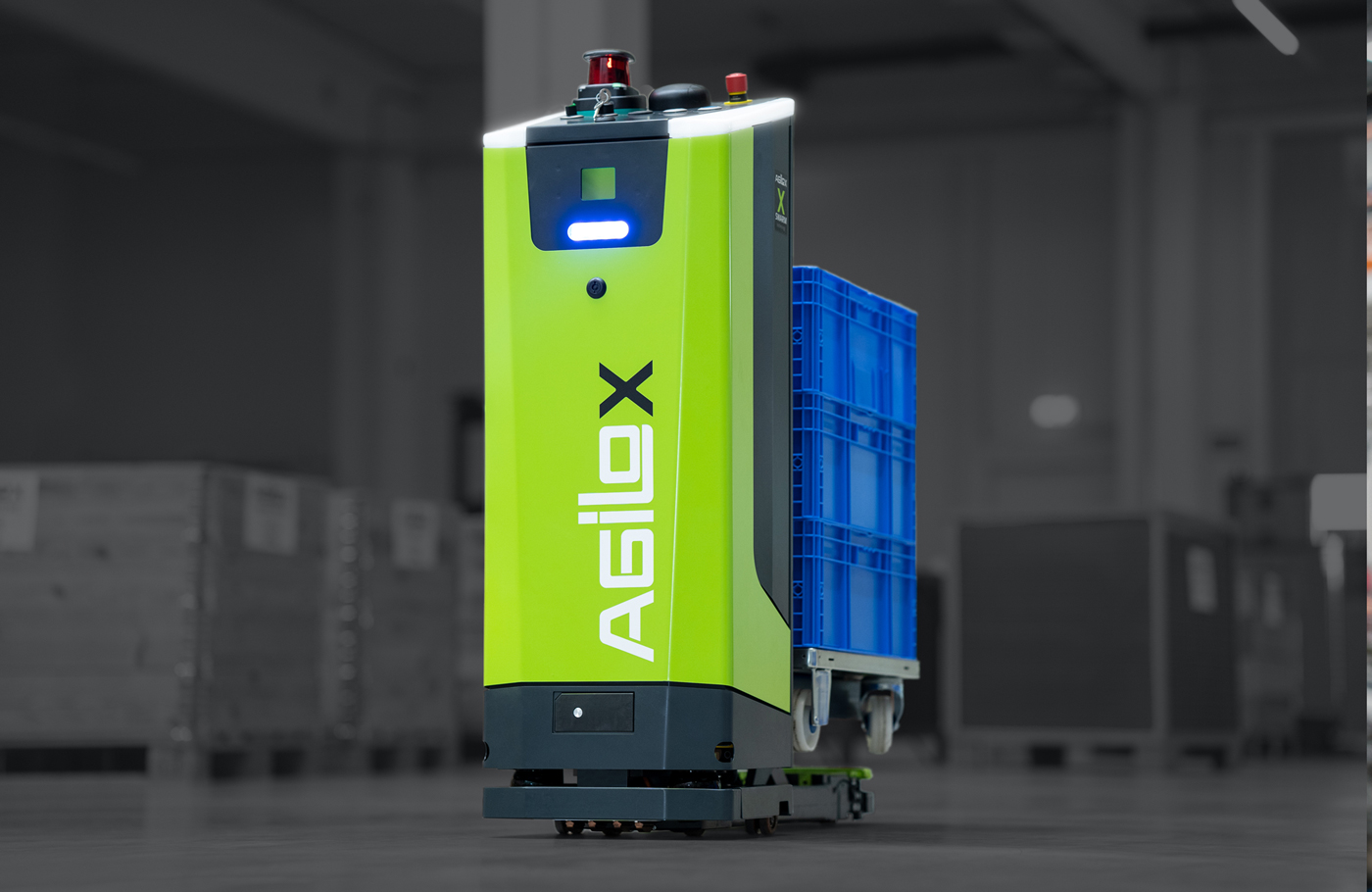
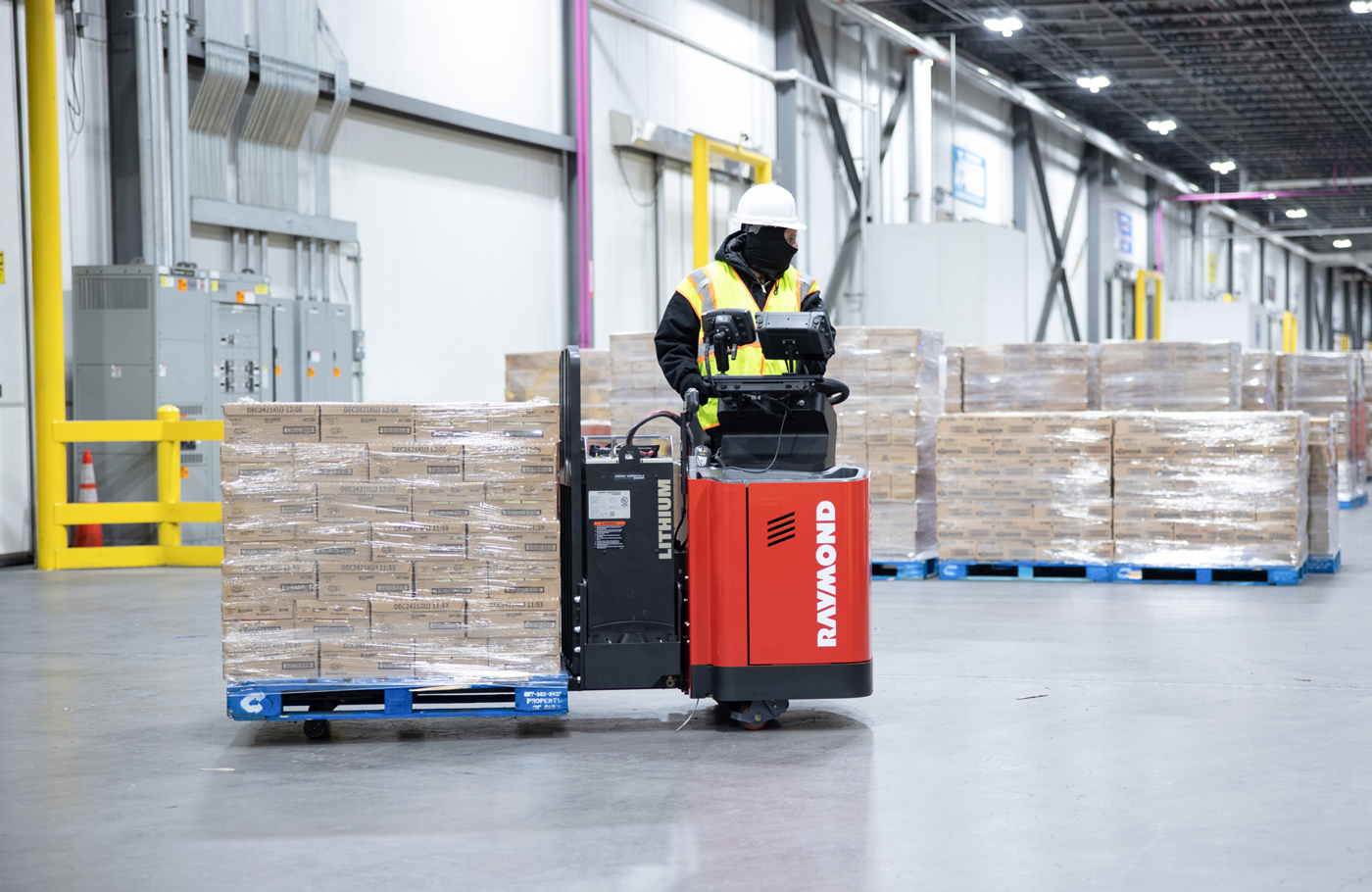
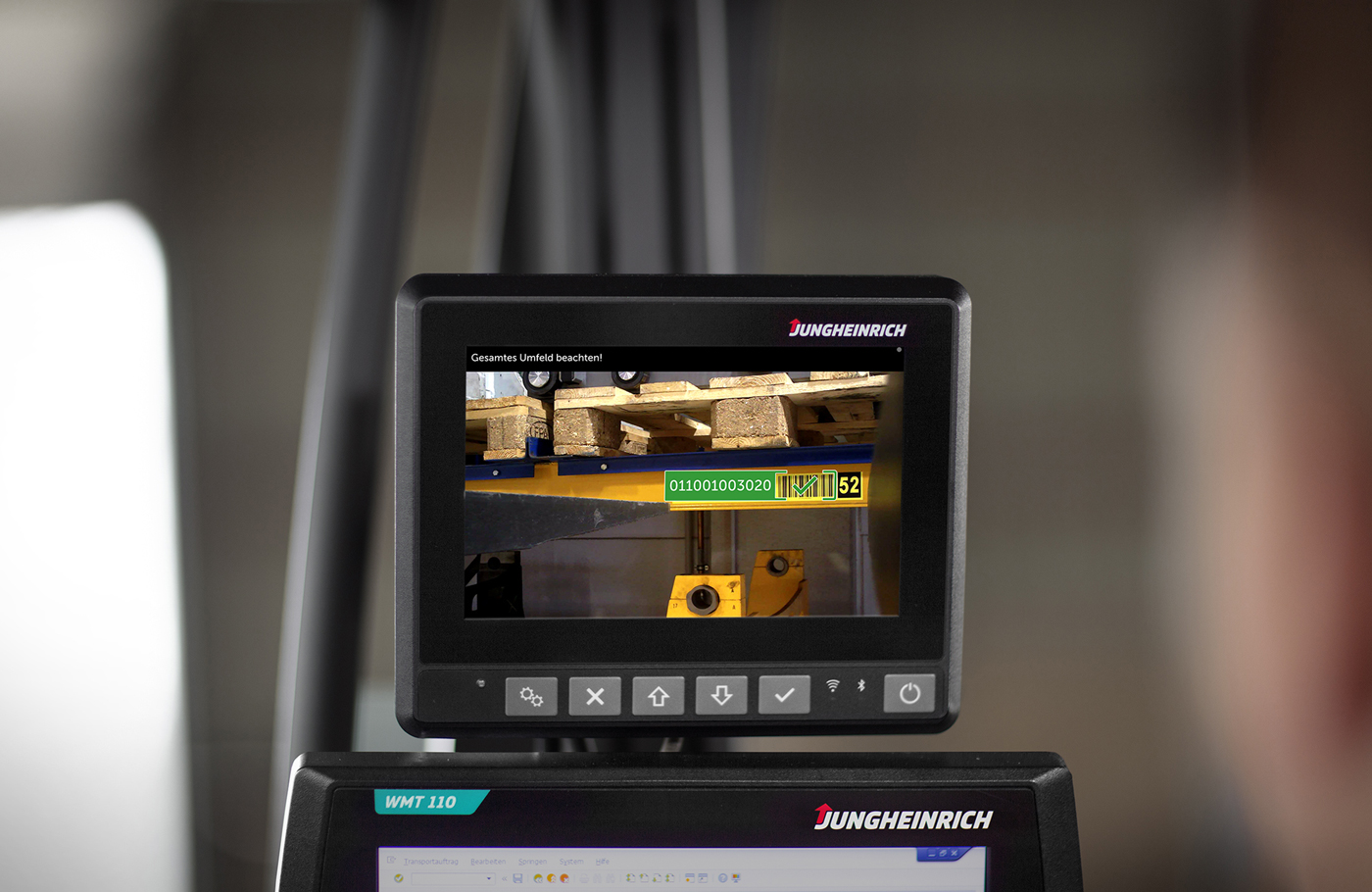
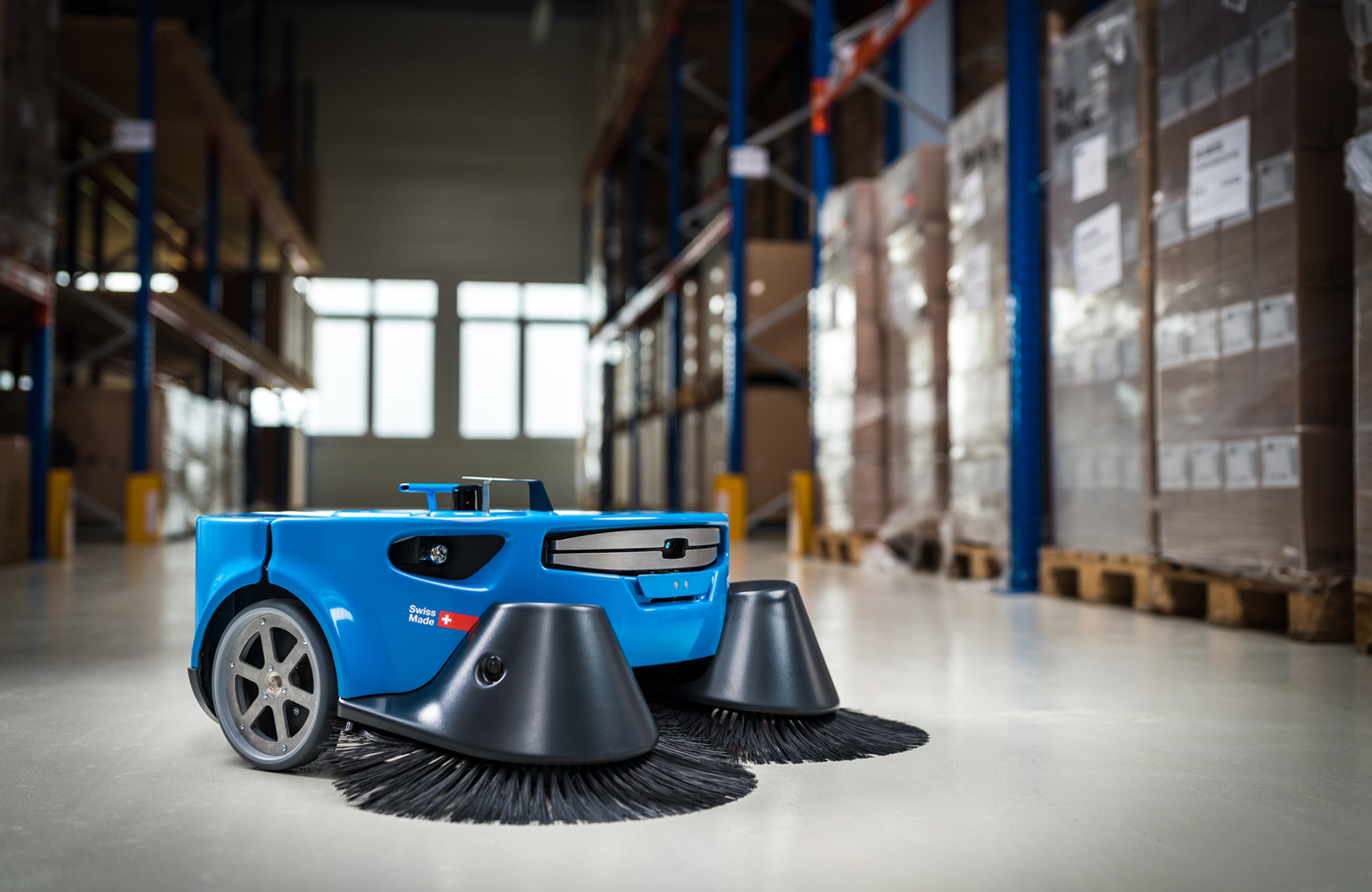
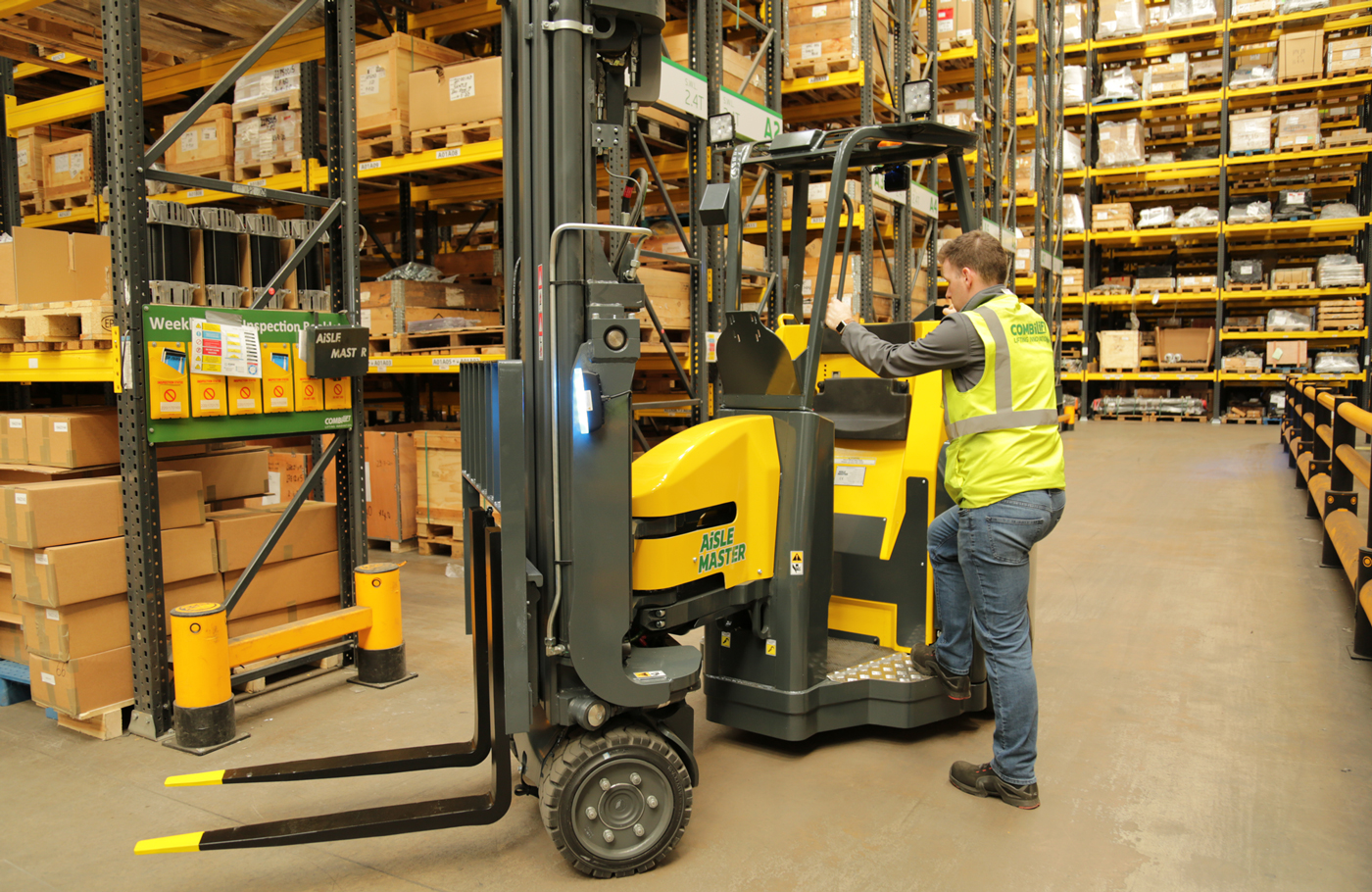
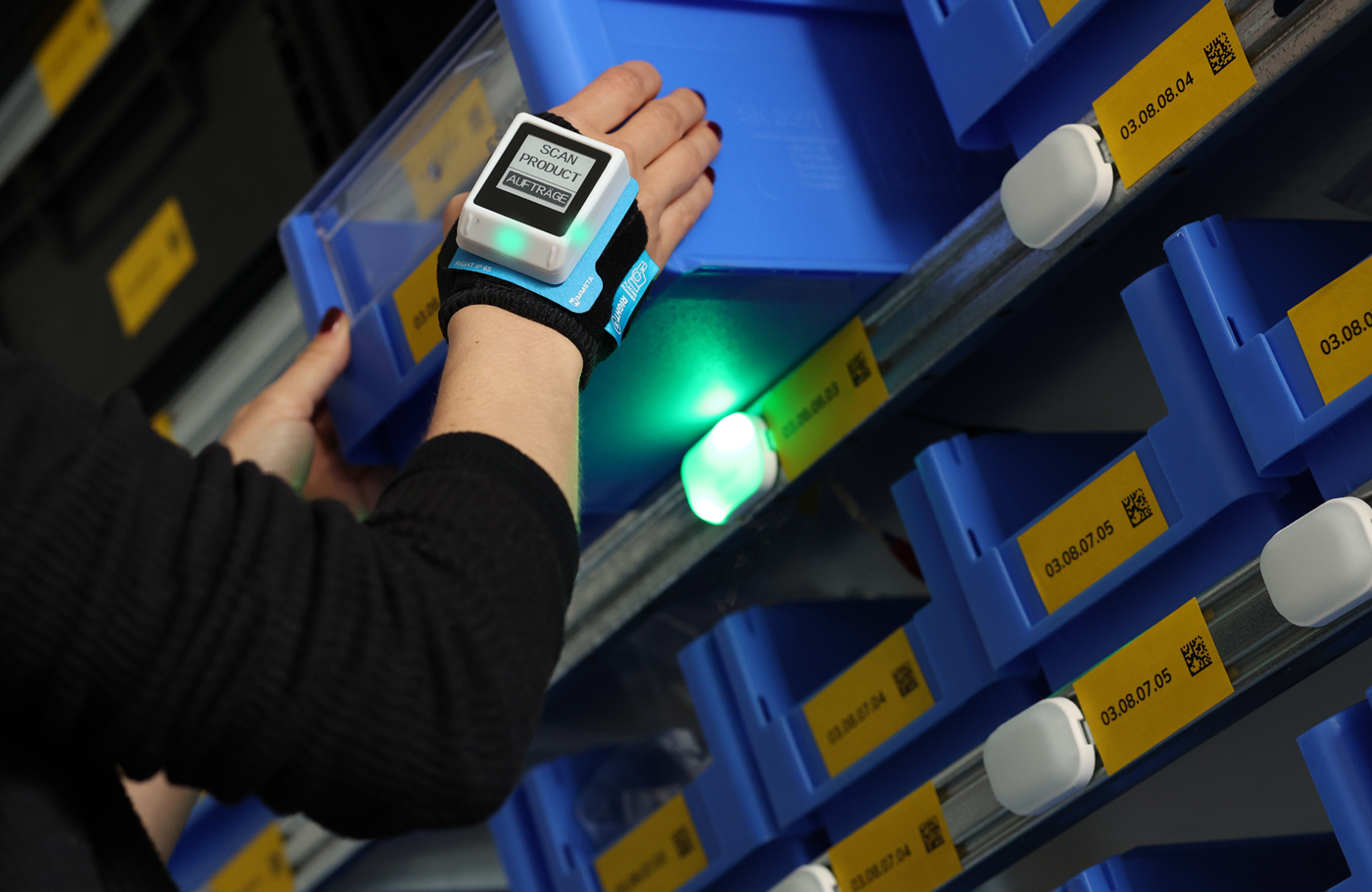
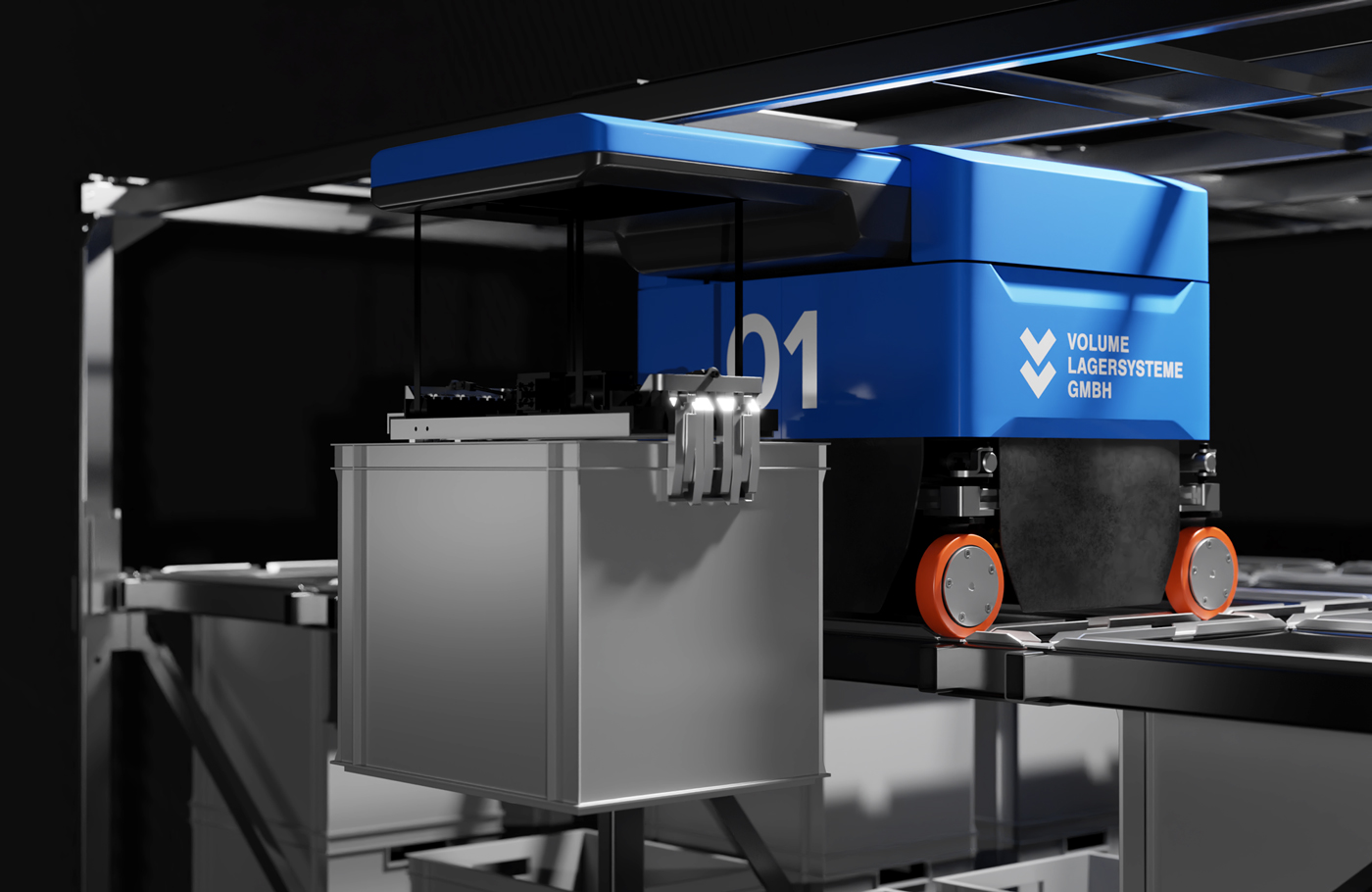
Four nominations for AGVs and AMRs
The bandwidth of IFOY applicants is traditionally large and internationally diverse in the field of automated guided vehicles (AGVs) which, for some years now, have not only come from the intralogistics sector. This time, four suppliers made it to the finals.
The new AGILOX ODM (omnidirectional dolly mover) from Austrian supplier AGILOX is an intelligent logistics robot for small-load carriers weighing up to 300 kg. It does not require any additional infrastructure or navigation aids, can turn while stationary, and offers parallel driving. The first ODM can be installed in under 12 hours; each additional installation takes just 15 minutes. The core target group is the pharmaceutical and electronics industries.
The AMR IL 1200 from Continental Automotive Technologies is designed for use in warehouses or logistics centres, as well as production logistics with heavy pallets, such as those found in the automotive and metalworking industries. With its integrated lifting system and various body options, the AMR IL 1200 transports pallets weighing up to 1.2 tonnes at a speed of 2 m/s.
The F4-1000C Forklift Mobile Robot from Chinese manufacturer HIKROBOT, with a load capacity of one tonne, is an alternative to conventional warehouse forklifts and, with its positioning accuracy, is particularly suitable for 24/7 use in extremely narrow aisles, as well as for material handling in the automotive, manufacturing, and consumer electronics industries. Under the control of the in-house Robotic Control System (RCS), the F4-1000C works in tandem with other vehicles.
Also from China, the Automatic Trolley AT100 of Youibot Robotics consists of the brand-new AT100 AMR assistance picking robot and the YOUIFleet fleet management system. The intuitive combination of AMR and batch picking trolley for loads up to 100 kg manages a speed of 1,5 m/s and was developed specifically for sorting and picking tasks in existing infrastructures, as well as for workflows of retailers and 3PLs.
Three intralogistics robots in the final
There are three automated warehouse systems in the intralogistics robot category.
The automated, ultra-compact, and scalable PowerCube compact warehouse system from Hamburg-based intralogistics company Jungheinrich adapts to almost any infrastructure and container dimensions. It can be used 24/7 across all industries and delivers four times the storage density of shelf racking at room heights of up to 12 m. The powerful lithium-ion shuttles can simultaneously pick up two 50-kg containers and load on the fly.
With the Airrob container handling robotic system from Chinese manufacturer Libiao Robotics, the robots can “climb” up the shelves to store, pick, sort, and move plastic containers weighing up to 35 kg. This simple and cost-effective solution is particularly suitable for micro-fulfilment centres or warehouses on a production line. Airrob focuses on e-commerce, footwear, apparel, cosmetics, pharmaceuticals, and production parts storage.
Volume DIVE from Volume Lagersysteme is a sophisticated robotics-based storage and picking system for heights up to 14 m. The robot can pick and deliver totes at any position without a lifter. Standard euro containers are stored as well as beverage crates, which may also be used outside the system. Although DIVE was developed for quick commerce, it is also an alternative to energy-intensive mini-load applications. Throughput can be scaled up to 4 000 containers per hour. In the smallest version, Volume DIVE takes up only 16 m².
Three nominations for Intralogistics Software
The jury nominated three solutions in total in the Intralogistics Software category.
The Industrial Truck Key Performance Indicator (FFZ-KPI) developed by Mobile Easykey as a component of its software enables the determination of a manufacturer-neutral fleet efficiency of the intralogistics fleet with only one key figure and a visual traffic light system. The basis of the FFZ-KPI is the OEE key figure for the overall equipment effectiveness of immobile equipment. The FFZ-KPI adds further calculation parameters to the OEE, making the key figure for moving equipment calculable for the first time.
With the vehicle software ARCOS, the Austrian supplier DS AUTOMOTION enables devices to be used either as AGVs or AMRs. With the help of so-called “plannable autonomy”, the advantages of both technologies are combined. The user can use autonomous functions specifically where they bring advantages and prevent them where disadvantages predominate.
The Warehouse Execution System from IdentPro promises up to 30% higher productivity. It uses Internet of Things (IoT) sensors on the vehicles to make all warehouse processes visible in the digital twin in real time (RTLS). The digitisation solution, which can be used indoors and outdoors, achieves centimetre-precise localisation (+/-10 cm) of goods and vehicles, collaborative use of autonomous and manned industrial trucks, and smart distribution of driving orders.
Three Specials of the Year in the final
Three products compete in the Special of the Year category.
The Light Tags from NIMMSTA are a new pick-by-light approach that promises up to 80% more efficiency without integration effort. The intelligence is in the Industrial Smart Watch, worn by the worker on their body. In the NIMMSTA app, a storage location is assigned once to each light tag, to which it is simply attached with an adhesive strip. When the worker approaches, the Smart Watch and Light Tag light up in the same colour and pattern.
The world’s first fully autonomous K900 dry-cleaning robot from Swiss supplier Kemaro can reduce cleaning costs by 70%, which amounts to more than US$37 000 per year (about R647 163) in a logistics company covering around 10 000 m2. The compact robots with integrated dust extraction systems navigate with the help of lidar and 3D sensors to clean even the toughest industrial dirt. Their speciality is large indoor spaces.
The addedVIEW fork camera with barcode scanning function from Jungheinrich is able to stack, scan, and transfer results in one go to any warehouse management system (WMS). The full-HD digital fork tine camera with integrated image processing software for barcode scanning detects whether the correct or incorrect barcode is located in front of the tine – even at great heights – as it passes by. An acknowledgement button near the steering wheel eliminates the need for hand scanners and makes unnecessary unstacking of incorrect goods a thing of the past.
Seven start-ups in the final
In the usual broad-based start-up category, the jury selected seven finalists.
Israeli tech company 1MRobotics gets the green light with its nano fulfilment centre of the same name for the last mile in omnichannel retailing. The modular robotic dark stores are delivered worldwide in standard containers and are ready for immediate use. Dark stores, a relatively new phenomenon, are retail facilities without consumer-facing infrastructure (think of them as tiny warehouses, often the size of convenience stores, with workers prepping orders for pickup or delivery). The business model is based on operational costs and well-known companies are already relying on the technology.
The new German start-up ff Fördersysteme solves a ubiquitous storage problem with its patented 3D conveyor and drive system. The 3D chain adapts to the space, not vice versa. Whether it’s curves, ramps, elevators, or inclines, different tasks can be solved in one track, eliminating the need for modular conveyor systems and saving space, while also opening up architectural possibilities. One application, for example, would be curved escalators.
A return on investment (ROI) of six months is promised by AI software for autonomous pick-and-place robotics sereact from its supplier, sereact. Picking processes that have already been trained in simulation can thus be transferred to new, unknown scenarios and integrated into existing warehouse management systems within one day, without robot programming or time-consuming teach-in.
Wolfsburg-based start-up Sentics enters the final IFOY round with the first optical, AI-based real-time localisation system ORTLS for industrial applications. Infrastructure sensors, which only need to be installed once in the industrial environment, detect and localise objects such as forklifts, people, or machines, making this information available to fleet managers, as well as autonomous transport vehicles.
ComputerMyoGraphie by Predimo is a final tool for evaluating workplaces in terms of ergonomics and process efficiency. With the help of cloud-based software and 17 IoT sensors over clothing, a digital human twin can be used to visualise which muscles and joints are actually under strain at work. This makes it possible to indicate physical overload as a key performance indicator and determine an ROI for ergonomics.
With its software-as-a-service solution Loady, the start-up Loady enters the race for an IFOY Award. Loady provides standardised requirements for loading and unloading at industrial sites and serves as a central pre-product database. Equipment to be brought along, documents, or processes on site are managed in a structured data model and serve as a source for all logistics partners. Free text fields or Excel files for logistics tenders, cleaning requirements, and pre-products are no longer necessary.
An IFOY nomination also goes to the passive exoskeleton SoftExo Lift from HUNIC. The extremely lightweight yet effective body-mounted lifting and carrying aid uses a spring principle to support the leg and back muscles by up to 21% when lifting and carrying loads, relieving the body of up to 50% of the load and positively influencing ergonomic posture.
IFOY Nominees at Test Camp Intralogistics
The innovations of the IFOY finalists will be available for testing by visitors to the Test Camp Intralogistics on March 29 and 30. The hands-on testing event for innovations and new developments enables decision-makers from industry, trade, and the service sector to extensively self-test selected innovations on 10 000 m2 of hall space. In addition to the IFOY finalists, over 50 innovations and 1 000 participants are expected at this year’s Camp.
Due to its expertise, the IFOY Award is considered the definitive innovation award in intralogistics. The selection is preceded by an extensive audit with nomination and test cycles. The equipment and solutions nominated for the final will undergo the IFOY test and the scientific innovation check individually at Messe Dortmund. In addition, jurors and their teams of industry advisors travel to Dortmund to assess the finalists themselves.
The coveted trophies will be awarded in the European summer. Until then, the results will remain a secret. You will be able to read all about the test days and the results in FOCUS later this year.



Published by
Focus on Transport
focusmagsa








